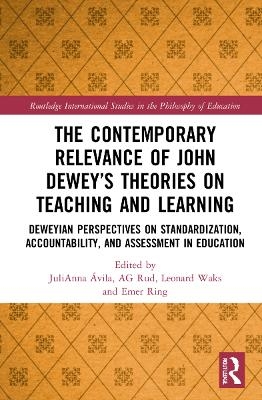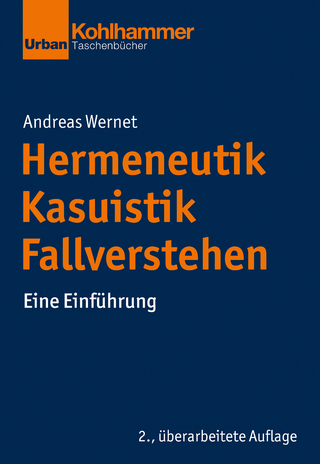
The Contemporary Relevance of John Dewey’s Theories on Teaching and Learning
Routledge (Verlag)
978-0-367-62151-3 (ISBN)
The Contemporary Relevance of John Dewey’s Theories on Teaching and Learning deconstructs issues regarding accountability mechanisms, uniform assessment systems, and standardization processes through a Deweyan lens. Connecting the zeitgeist of the era from which Dewey’s ideas emerged and current global political, social, and economic contexts, the book emphasizes the importance of resilient systems in reconciliating the tension between standardized assessments and individual student development. Contributors provide insights from a range of settings across Pre-K, primary, secondary, and higher education and address topics including teacher agency, voice, leadership, and democracy.
The volume will be of interest to scholars, researchers, and academics with an interest in philosophy of education, education policy and the impact of neoliberal agendas, as well as teaching and learning more broadly.
Section 1: Post-Standardization Approaches to Accountability Introduction to Section I 1. John Dewey and the Cult of Efficiency 2. Standardization as the ‘Unmoved Mover’ of Education: A Deweyan Perspective on Teaching and Teacher Education 3. How the High-Stakes Testing and Accountability Movement Undermines Educative Experiences 4. Applying Dewey’s ‘Both/And’ in Experience and Education to a Contemporary Critique of Standardisation 5. Becoming through Being: Dewey’s Relevance to Educating for the Future of Work 6. Rethinking Accountability: Teaching towards an Ecocritical Creative Democracy Section 2: A Deweyan Vision of Teacher Professionalization Introduction to Section II 7. Moral Literacy as Social Efficiency in Dewey: Preparing Educators for Moral Agency and Autonomy in 21st Century Schools 8. Child and the Curriculum in the 21st Century: The Relationship between Enquiry and Inquiry in the Classroom 9. Listening to the Voices of Teachers Through Dewey’s Ideas 10. Teaching in the Flow of Time: Rethinking Our Educational Narrative 11. The Challenges of Teaching for Democracy in the 21st Century: Dewey, Dialogic Pedagogy and Teacher Education in England 12. The Teacher’s Role: From Dewey’s Lab School to a Public College Section 3: Praxis for Democratic Ends in the Context of Standardization Introduction to Section III 13. Exploring Contemporary Assessment Policy and Practice in the Context of Dewey’s Philosophy of Education 14. Accountability, Data, and Social Meliorism: Can They Co-Exist? 15. Reimagining School Leaders as Stealth Democratic Actors: A Deweyan Analysis of the School Leader Paradigm 16. Self-Accountability in Teaching Against the Grain: A Dewey-Informed Approach to Professional Preparation 17. The Concept of the Child, Pedagogy, Curriculum and Accountability in Early Childhood Education for a Post-Covid 19 World: Insights from Dewey’s Philosophy 18. John Dewey on the Long Look Ahead: Reconstructing How We Approach Assessment in Teacher Education Programs Through the Democratic Cultivation of the Purposes of Education
| Erscheinungsdatum | 05.10.2021 |
|---|---|
| Reihe/Serie | Routledge International Studies in the Philosophy of Education |
| Zusatzinfo | 1 Tables, black and white; 10 Line drawings, black and white; 2 Halftones, black and white; 12 Illustrations, black and white |
| Verlagsort | London |
| Sprache | englisch |
| Maße | 152 x 229 mm |
| Gewicht | 503 g |
| Themenwelt | Sozialwissenschaften ► Pädagogik ► Allgemeines / Lexika |
| Sozialwissenschaften ► Pädagogik ► Bildungstheorie | |
| ISBN-10 | 0-367-62151-7 / 0367621517 |
| ISBN-13 | 978-0-367-62151-3 / 9780367621513 |
| Zustand | Neuware |
| Informationen gemäß Produktsicherheitsverordnung (GPSR) | |
| Haben Sie eine Frage zum Produkt? |
aus dem Bereich


